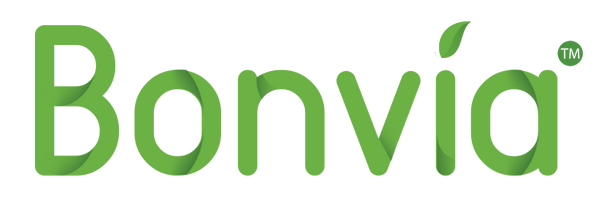No, stevia is not sugar. Stevia is a natural sweetener that comes from the leaves of the Stevia rebaudiana plant. While it is commonly used as a sugar substitute due to its intense sweetness, it has a different chemical composition than sugar and is not metabolized in the same way by the body. Stevia has zero calories and is generally considered a healthier alternative to sugar.
FAQs
Got Questions? We've Got Answers! Here’s Everything You Need to Know About Bonvia Stevia
Stevia
Firstly, it is much sweeter than sugar, so you can use less of it to achieve the same level of sweetness. Secondly, stevia has zero calories, which makes it a good option for people who are trying to lose weight or manage their blood sugar levels such as diabetic patients Moreover, stevia is a natural sweetener that is derived from the leaves of the Stevia rebaudiana plant, whereas sugar is a highly processed product.
Stevia is a natural sweetener that is derived from the leaves of the Stevia rebaudiana plant. It has zero calories and is much sweeter than sugar, which means you can use less of it to achieve the same level of sweetness.
Due to their potential to aid in metabolic health, many experts suggest the use of zero-calorie sweeteners like stevia for individuals with obesity, prediabetes, and diabetes.
Stevia is considered to be a good sweetener for people with diabetes. It is a natural sweetener that has zero calories and a negligible effect on blood sugar levels. This is because stevia is not metabolized in the same way as sugar, and therefore does not cause a spike in blood sugar levels.
Yes, stevia is FDA-approved as a sweetener. The FDA granted stevia Generally Recognized As Safe (GRAS) status, which means that it is considered safe for use as a food additive. The FDA has approved high-purity steviol glycosides, which are the sweet components of the stevia plant, for use in foods and beverages.
سٹیویا
Bonvia
Bonvia is a brand of sweetener that is made from a blend of two natural sweeteners: stevia and erythritol. Stevia is a sweetener derived from the leaves of the Stevia rebaudiana plant, while erythritol is a polyol that occurs naturally in fruits and fermented foods.
1 sachet of Bonvia is approximately equal to 2 tsp. of sugar.
Bonvia is suitable for patients with diabetes as it has a very low glycemic index and zero sugar content.
There are no known side effects of Bonvia Stevia
Bonvia is 100% natural and contains 0 calories.
Some Bonvia Stevia benefits include: Calorie-free Alternative: It is calorie-free, making it an excellent option for diabetics and weight loss diets Low Glycemic Index: Stevia has a very low glycemic index, implying that it does not affect blood sugar levels Versatile: It can be used in a variety of ways, including in baking, cooking, and beverage Dental Health: Unlike sugar, stevia does not contribute to tooth decay
Natural Sweeteners
We use natural sweeteners for a variety of reasons. Firstly, natural sweeteners are often considered to be healthier alternatives to processed sugars, as they can help to reduce calorie intake and prevent spikes in blood sugar levels. Additionally, natural sweeteners are often derived from plants, which can be more sustainable and environmentally friendly than artificial sweeteners. Finally, natural sweeteners can add flavor and sweetness to foods and beverages without the need for artificial additives or preservatives, which can make them a more appealing choice for many people.
Erythritol is another natural sweetener that is often said to taste very similar to sugar. It has a clean, sweet taste that is almost identical to sugar, and it also has the same mouthfeel as sugar, which can make it a good substitute in many recipes.
Natural sweeteners can come from a variety of sources, including plants, fruits, and vegetables. For example: Stevia is derived from the leaves of the stevia plant. The monk fruit extract is made from monk fruit, which is native to Southeast Asia. Erythritol is a polyol that occurs naturally in some fruits and fermented foods. Honey is a sweetener that is produced by bees from the nectar of flowers. Maple syrup is made from the sap of maple trees. Other natural sweeteners include coconut sugar, date sugar, agave nectar, and molasses. Many of these sweeteners are minimally processed and retain some of the vitamins, minerals, and antioxidants that are present in the original plant or fruit.
